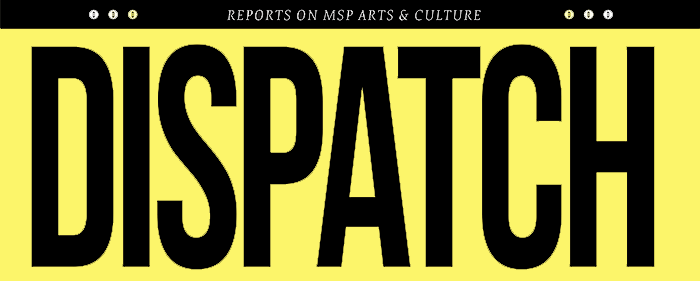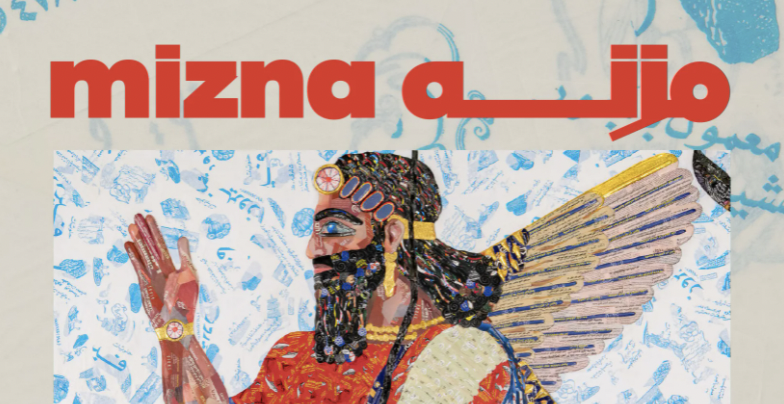Along with the excellent Arab Film Festival, Mizna hosts other screenings at the Trylon—like the absolutely epic Route 181: Fragments of a Journey in Palestine-Israel documentary that continues THIS WEDNESDAY with part three, The North. We check in with
DISPATCH: How much will this film series change our entire worldview, especially on Palestine? We like to prepare a little bit for seismic shifts and whatnot. Lana Barkawi: I’m so thrilled that we’re bringing the incredible Route 181 to Minnesota audiences starting this month. Our film team Michelle Baroody and Ahmed Abdulmageed selected this expansive, three-part documentary for the first season of our film series, and it’s a timely choice, as we are witnessing an uptick in the Israeli state aggression toward Palestinians. What you’ll see is a moving road trip through the original border imposed in 1947 by UN Resolution 181 that split the land, with the filmmakers interviewing a broad array of people, both occupiers and occupied, about the occupation. It will be a truly illuminating experience, whether you’re steeped in the subject of Palestine or not.
You can catch Part II, The North at the Trylon on Wednesday, with strict COVID protocols in place (be ready to show your vaccination card or negative test result) or on our digital film platform Thursday through Sunday. TICKETS >>
The new ‘Experimental Issue‘ that virtually launches this weekend has an astonishing 21 authors? Are times hard enough without wrangling copy from creatives?
Yes, times are hard! And I do hear from many writers and artists that the pandemic has made it more difficult to create. This will be the fourth issue of our lit journal we’ve published since the pandemic began, in addition to a special printed folio called I Want Sky that we collaborated on with the Asian American Writers’ Workshop.
Luckily for us, our authors seem to be making great work despite the challenges. One thing that has become clearer for us than ever before, both in working with creatives and working as a small team, it’s been important to prioritize people over deadlines. So many are dealing with loss, grief, isolation, and the continual adjustment to an ever-changing reality—trying to force arbitrary timelines is just not helpful, if not actually cruel and absurd. So, we’re trying to balance that grace with producing work. Because the work is important—it brings joy and connection as well. People are seeking poetry, beauty, ideas to engage with.
Is the pandemic in a way maybe sort of—and we’re really trying to put some positive spin here since things are so rough out there—helpful for writers, poets, and other artists to get some time to make work? Subsequently will this be your best ever issue of the journal of Arab-American art? I’m sure the pandemic has affected writers and artists in many different ways and, for some, their art practice is a catharsis—a productive way to metabolize their immediate reality. An author told me that it’s helped given her clarity to focus on the work and the audiences that really matter to her.
But I wouldn’t say that the pandemic has been beneficial—the pandemic has only been devastating, full stop. That said, given this reality, we’re lucky for the work of artists who are critical storytellers and metabolizers of our realities and experiences. I’m definitely seeing incredibly writing and comic art from our community. In last year’s Comix Issue of Mizna, there were a number of pieces that were very directly grappling with the pandemic. Incidentally, I was just doing a delivery, restocking Mizna at Subtext Books in St. Paul and saw the Comix issue on the shelves there.
To your question, each issue of Mizna is the best ever! This Experimental Issue, edited by local poet Tarik Dobbs, is full of inventive pieces, new poetry forms, and vibrant ideas. The visual art of Michael Rakowtiz is stunning and plays with the notions of erasure, commodification, and value, painstakingly recreating destroyed Iraqi archeological works using colorful food packaging from immigrant grocery shops. And we’re honored to have poetry from Mohammed El-Kurd in the issue. He’s the Palestinian journalist with the Nation and a poet who, with his sister, has been very publicly defending his family’s home in East Jerusalem from state destruction. He’ll be reading at the launch along with many other writers in the issue.
How are you doing? How is Mizna doing? With the never-ending pandemic we mean.
Well, you know, I’m doing ok—how do you answer that question these days? My middle-school-aged kids are in week two of distance learning because of omicron, and that’s not ideal. But, the days are getting longer, and there is hope in that. I’m definitely feeling gratitude for my family’s health and the health of the Mizna team. Mizna is doing well, all things considered. The small team is currently located in four different countries and three continents, but we manage to stay cohesive and creative. We have exciting programming ahead with the film series and the Experimental issue, and even more to come, including a special Black SWANA takeover issue guest edited by the incredible poet Safia Elhillo. We’re longing for IRL gatherings with Mizna community, and holding on to hope that those are on the horizon.
Get all the details on Mizna’s programming and events at their website, Mizna.org.


Comments are closed, but trackbacks and pingbacks are open.